
Over-the-counter (OTC) beauty supplements—like collagen, biotin, vitamins, and antioxidants—promise glowing skin, stronger hair, and improved nails. While many deliver on their promises, it’s essential to recognize that these supplements can also have side effects, especially when taken improperly or in excessive amounts. In this guide, we’ll explore the potential side effects of popular OTC beauty supplements and tips to use them safely.
Biotin (Vitamin B7) – Breakouts and Lab Interference
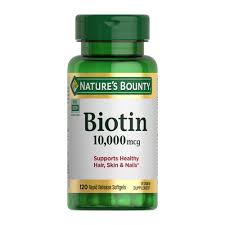
Benefits
Promotes Hair Growth: Biotin supports keratin production, which strengthens hair follicles and may help reduce hair thinning and breakage, making it popular for enhancing scalp and beard growth.
Improves Skin Health: It helps maintain healthy skin by supporting fatty acid production, which prevents dryness, rashes, and acne.
Strengthens Nails: Biotin can enhance nail thickness and reduce brittleness, helping prevent breakage and splitting.
Supports Metabolism: As a B-vitamin, biotin aids in converting carbohydrates, fats, and proteins into energy, helping maintain optimal metabolism.
Enhances Brain Function: Biotin is essential for nerve function and may help support cognitive health and mood regulation.
Side Effects:
Acne Breakouts: High doses can cause cystic acne, particularly around the chin and jawline.
Lab Test Interference: Biotin can skew thyroid and cardiac biomarker test results, potentially leading to misdiagnosis.
Digestive Issues: High doses might cause nausea or cramping.
Tip: Limit intake to 30–100 mcg daily unless directed otherwise. Discontinue use at least 48 hours before blood tests.
Collagen Supplements – Digestive Discomfort
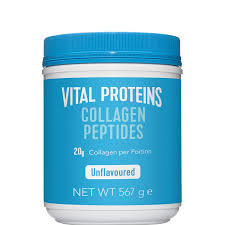
Benefits
Improves Skin Health: Collagen helps maintain skin elasticity and hydration, reducing the appearance of wrinkles and fine lines. Regular supplementation can boost skin smoothness and slow down aging signs.
Supports Joint Health: Collagen is a major component of cartilage. Taking collagen supplements can reduce joint pain and stiffness, especially in people with osteoarthritis or active lifestyles.
Strengthens Hair and Nails: Collagen provides essential amino acids that support keratin production, helping to reduce brittle nails and promote stronger, healthier hair growth.
Boosts Bone Density: Collagen contributes to bone structure and strength. Supplementing with collagen may help slow down bone loss associated with aging, reducing the risk of osteoporosis.
Aids Muscle Mass: Collagen contains glycine and other amino acids that support muscle repair and growth, making it beneficial for maintaining muscle mass, especially in older adults.
Side Effects
Bloating and Stomach Discomfort: Particularly with marine-based collagen.
Allergic Reactions: Possible if you have fish, shellfish, or egg allergies.
Bad Taste or Aftertaste: Common with powdered forms.
Tip: Choose hydrolyzed collagen for easier digestion and start with small doses.
Vitamin A – Toxicity Risks

Benefits
Supports Vision: Vitamin A is essential for maintaining healthy eyesight. It helps form rhodopsin, a pigment in the retina that enables us to see in low light conditions and prevents night blindness.
Boosts Immune Function: Vitamin A strengthens the immune system by supporting the production and function of white blood cells, which help fight off infections.
Promotes Skin Health: It aids in the production of new skin cells and regulates sebum production, helping to prevent acne and maintain smooth, healthy skin.
Powerful Antioxidant: As an antioxidant, Vitamin A helps neutralize free radicals, reducing oxidative stress and lowering the risk of chronic diseases.
Supports Reproductive Health: Vitamin A is vital for reproductive processes in both men and women and plays a crucial role in fetal development during pregnancy.
Side Effects
Hypervitaminosis A: Symptoms include dry skin, dizziness, and liver damage, caused by excessive intake.
Hair Loss and Bone Pain: Linked to long-term high doses.
Birth Defects: High levels during pregnancy can harm fetal development.
Tip: Stick to the recommended daily intake of 700–900 mcg for adults.
Vitamin C – Digestive Issues
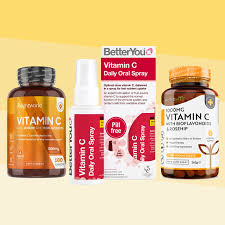
Benefits
Brightens skin and boosts collagen synthesis.
Side Effects
Digestive Issues: High doses (over 2,000 mg per day) can cause nausea, stomach cramps, and diarrhea due to its acidic nature.
Kidney Stones: Excessive Vitamin C can increase oxalate levels in urine, potentially leading to the formation of kidney stones, especially in people prone to them.
Iron Overload: Vitamin C enhances iron absorption, which can be problematic for people with conditions like hemochromatosis, leading to toxic iron levels.
Heartburn and Acid Reflux: High doses can increase stomach acidity, causing heartburn or aggravating acid reflux symptoms.
Headaches and Insomnia: Large amounts of Vitamin C may cause headaches or interfere with sleep in some individuals.
Blood Sugar Interference: High doses of Vitamin C can cause false readings in blood glucose tests, potentially complicating diabetes management.
Skin Irritation: Topical Vitamin C products, especially at high concentrations, can cause redness, itching, or a burning sensation in people with sensitive skin.
Increased Risk of Gout: Excess Vitamin C may raise uric acid levels, potentially triggering gout flare-ups in susceptible individuals.
Tip: Limit intake to 500–1,000 mg per day for optimal benefits without side effects.
Zinc – Immune Impact and Nausea
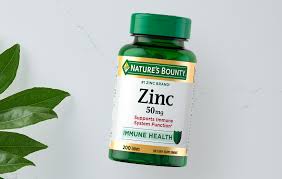
Benefits
Boosts Immune Function: Zinc is essential for the development and function of immune cells, helping the body fight off infections and reduce inflammation.
Supports Wound Healing: Zinc plays a critical role in collagen synthesis and cell repair, making it vital for speeding up wound healing and preventing infections.
Promotes Skin Health: It helps manage acne by regulating oil production and reducing inflammation, and it also protects the skin from UV damage.
Enhances Cognitive Function: Zinc is involved in neurotransmitter function and supports brain health, improving memory and learning abilities.
Maintains Hormonal Balance: Zinc is crucial for reproductive health, supporting testosterone production in men and regulating menstrual health in women.
Side Effects
Nausea and Vomiting: High doses of zinc (usually above 40 mg per day) can irritate the stomach lining, causing nausea, vomiting, and stomach pain.
Diarrhea: Excess zinc can disrupt gut health, leading to digestive issues like diarrhea and abdominal cramps.
Copper Deficiency: High zinc intake can interfere with copper absorption, leading to anemia, weakened immune function, and neurological problems.
Weakened Immune System: While moderate zinc boosts immunity, excessive intake can impair immune cell function, making you more susceptible to infections.
Metallic Taste: Zinc supplements can cause a persistent metallic or bitter taste in the mouth.
Headaches: Large amounts of zinc can cause headaches or dizziness due to changes in neurotransmitter function.
Kidney Damage: Prolonged high-dose zinc supplementation may contribute to kidney damage, particularly in people with pre-existing kidney issues.
Interference with Medications: Zinc can interact with antibiotics, diuretics, and certain arthritis medications, reducing their effectiveness.
Tip: To avoid these side effects, it’s best to stick to the recommended daily intake of 8–11 mg for adults and not exceed 40 mg per day unless advised by a healthcare provider.
Omega-3 Fatty Acids – Blood Thinning

Benefits
Supports Heart Health: Omega-3s help lower triglycerides, reduce blood pressure, and prevent plaque buildup in arteries, significantly reducing the risk of heart disease.
Boosts Brain Function: DHA, a type of omega-3, is a major component of brain cells. It supports cognitive function, improves memory, and may lower the risk of Alzheimer’s and dementia.
Reduces Inflammation: Omega-3s have anti-inflammatory properties that help manage chronic inflammatory conditions like arthritis, asthma, and inflammatory bowel disease.
Improves Mental Health: Regular intake of omega-3s, especially EPA, is linked to lower risks of depression and anxiety and can enhance mood and emotional well-being.
Promotes Eye Health: DHA is a key structural component of the retina. Adequate omega-3 intake can help prevent age-related macular degeneration and dry eyes.
Side Effects
Digestive Issues: High doses can cause nausea, diarrhea, indigestion, and bloating, especially from fish oil supplements.
Fishy Aftertaste and Breath: Fish oil supplements can cause a lingering fishy taste, burps, or bad breath.
Blood Thinning: Omega-3s can reduce blood clotting, which increases the risk of excessive bleeding, especially for those on blood-thinning medications.
Low Blood Pressure: While beneficial for most, omega-3s can lower blood pressure too much in people already on antihypertensive medication.
Vitamin A Toxicity: High doses of cod liver oil, rich in omega-3s and vitamin A, can lead to vitamin A toxicity, causing dizziness, nausea, and even liver damage.
Allergic Reactions: Some people might experience allergic reactions like rash, itching, or difficulty breathing, especially with fish-based supplements.
Heavy Metal Contamination: Poor-quality fish oil supplements may contain mercury, lead, or other toxins that can cause serious health risks over time.
Insomnia: In some cases, high doses of omega-3s can interfere with sleep patterns, leading to insomnia or vivid dreams.
To minimize side effects, it’s best to stick to recommended dosages (250–500 mg of combined EPA and DHA per day for most adults) and choose high-quality, purified supplements.
Tip: Choose enteric-coated capsules and limit intake to 1,000 mg of EPA and DHA daily.
Probiotics – Gut Imbalance

Benefits
Supports Digestive Health: Probiotics help balance the gut microbiome by replenishing beneficial bacteria, reducing symptoms of bloating, constipation, and irritable bowel syndrome (IBS).
Boosts Immune Function: A healthy gut flora enhanced by probiotics strengthens the immune system by promoting antibody production and inhibiting harmful bacteria.
Improves Mental Health: The gut-brain axis means probiotics can influence mood and cognitive function, potentially reducing symptoms of anxiety, depression, and stress.
Aids in Weight Management: Certain probiotic strains can enhance fat metabolism, reduce appetite, and prevent fat storage, supporting weight loss efforts.
Enhances Skin Health: Probiotics can help manage acne, eczema, and rosacea by reducing inflammation and improving skin barrier function.
Side Effects
Digestive Discomfort: Initially, probiotics can cause gas, bloating, or diarrhea as the gut microbiome adjusts.
Infections in Vulnerable People: In rare cases, probiotics can cause infections in people with weakened immune systems, such as those with HIV/AIDS or organ transplants.
Allergic Reactions: Some probiotics contain allergens like dairy, soy, or gluten, causing allergic reactions in sensitive individuals.
Risk of SIBO (Small Intestinal Bacterial Overgrowth): Excessive probiotic use can contribute to bacterial overgrowth in the small intestine, causing bloating and discomfort.
Headaches: Probiotic-rich foods like yogurt, sauerkraut, and kimchi contain amines that can trigger headaches in some people.
Increased Histamine Levels: Certain probiotic strains produce histamine, which can cause symptoms like itching, hives, or nasal congestion in sensitive individuals.
Interference with Medications: Probiotics may interact with antibiotics or immunosuppressive drugs, reducing their effectiveness or causing side effects.
Risk of Antibiotic Resistance: Improper use of probiotics can contribute to antibiotic resistance if they carry transferable resistance genes.
Tip: Start with low doses and choose strains like Lactobacillus and Bifidobacterium for skin benefits.
Hyaluronic Acid – Minimal Risks but Watch Dosage
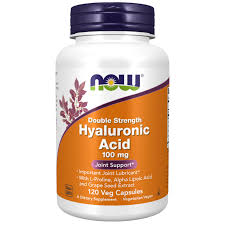
Benefit
Hydrates Skin: Hyaluronic acid is a powerful humectant that can hold up to 1,000 times its weight in water, helping to keep the skin plump, smooth, and hydrated.
Reduces Fine Lines and Wrinkles: By retaining moisture, hyaluronic acid helps fill in fine lines and makes the skin look firmer and more youthful.
Speeds Up Wound Healing: Hyaluronic acid promotes tissue repair and reduces inflammation, making it effective for healing wounds, burns, and other skin injuries.
Supports Joint Health: Naturally present in synovial fluid, hyaluronic acid acts as a lubricant for joints, reducing pain and stiffness, especially in osteoarthritis.
Improves Skin Barrier Function: It strengthens the skin’s natural barrier, preventing moisture loss and protecting against environmental aggressors like pollutants and UV rays.
Side Effects
Skin Irritation: Some people may experience redness, itching, or mild irritation when using topical hyaluronic acid, especially if it contains added fragrances or preservatives.
Allergic Reactions: Though rare, hyaluronic acid derived from animal sources can cause allergic reactions, leading to rashes or swelling.
Dryness in Low Humidity: In dry climates, hyaluronic acid may draw moisture from deeper layers of the skin instead of the air, potentially causing dryness or tightness.
Bruising and Swelling (Injections): Injectable hyaluronic acid used in dermal fillers can cause temporary bruising, swelling, or lumps at the injection site.
Eye Irritation: Hyaluronic acid in eye drops can cause temporary burning or redness in sensitive individuals.
Headaches: Dermal fillers containing hyaluronic acid may cause mild headaches as a side effect in some cases.
Interactions with Retinol: Using hyaluronic acid alongside strong actives like retinol or AHAs without proper layering can cause sensitivity or irritation.
Risk of Infection (Injections): Improperly administered hyaluronic acid injections can lead to infections or complications like granulomas.
Tip: Stick to 120–240 mg daily for safety and effectiveness.
Fat-Soluble Vitamins (D, E, K) – Toxicity Risks

Benefits
Vitamin D: 🌞
- Supports Bone Health: Promotes calcium absorption in the gut, helping to maintain strong bones and prevent osteoporosis.
- Boosts Immune System: Enhances pathogen-fighting effects of monocytes and macrophages, reducing infection risks.
- Improves Mood: Linked to serotonin production, helping reduce symptoms of depression.
- Regulates Insulin: Supports glucose metabolism, aiding in diabetes management.
- Reduces Inflammation: Modulates inflammatory responses, beneficial for autoimmune conditions.
2. Vitamin E: 🌿
- Powerful Antioxidant: Protects cells from oxidative damage caused by free radicals.
- Promotes Skin Health: Enhances skin barrier function and aids in healing scars and dryness.
- Supports Eye Health: Reduces risk of age-related macular degeneration and cataracts.
- Strengthens Immune System: Enhances T-cell function, helping to combat infections.
- Improves Heart Health: Prevents LDL cholesterol oxidation, lowering atherosclerosis risk.
3. Vitamin K: 🥦
Improves Insulin Sensitivity: Helps regulate glucose metabolism and may reduce diabetes risk.
Aids in Blood Clotting: Essential for synthesizing proteins needed for blood coagulation to prevent excessive bleeding.
Supports Bone Health: Activates osteocalcin, a protein that binds calcium to bones, reducing fracture risk.
Prevents Calcification: Inhibits arterial calcification, supporting cardiovascular health.
Boosts Cognitive Health: May prevent cognitive decline by reducing oxidative stress.
Side Effects
Vitamin D Side Effects
Hypercalcemia: Excessive intake can cause high calcium levels, leading to nausea, vomiting, and kidney stones.
Kidney Damage: High calcium can cause calcification in kidneys, impairing function.
Digestive Issues: Can cause constipation, diarrhea, or stomach cramps.
Vitamin K Side Effects
Interferes with Blood Thinners: Can counteract anticoagulant medications like warfarin.
Allergic Reactions: Rarely, can cause rash, itching, or difficulty breathing.
Vitamin E Side Effects
Increased Bleeding Risk: High doses can act as a blood thinner, interfering with clotting.
Nausea and Stomach Cramps: Excessive intake can cause digestive discomfort.
Weakens Immune Function: High doses may suppress immune response over time.
Herbal Beauty Supplements – Hormonal Effects

Popular Herbs: Saw Palmetto, Ginseng, Evening Primrose Oil
Side Effects
Hormonal Imbalance: Herbs like saw palmetto may affect estrogen or testosterone levels.
Headaches and Allergies: Common with ginseng and evening primrose oil.
Blood Pressure Changes: Some herbs may interact with hypertension medication.
Tip: Consult a healthcare provider before combining herbal supplements.
How to Minimize Side Effects of Beauty Supplements
Start Low and Go Slow: Begin with half the recommended dose to assess tolerance.
Take with Food: Helps reduce nausea and enhances absorption for most supplements.
Hydrate: Water aids in the absorption and processing of nutrients.
Consult a Professional: Especially if you’re on medication or pregnant.
FAQs About Beauty Supplement Side Effects
- How long do side effects last? Typically, mild side effects like bloating or nausea subside in a few days. Stop use if severe symptoms persist.
- Can I take multiple beauty supplements together? Yes, but avoid combining those that compete for absorption (e.g., zinc and iron).
- Should I stop supplements if I experience side effects? Pause and reintroduce one at a time to identify the culprit. Consult a healthcare provider for severe reactions.
- What are the side effects of inner beauty supplements? Some may cause digestive issues, allergic reactions, or hormonal imbalances, especially if taken in high doses.
- What is the negative side of supplements? Excessive or improper use can lead to toxicity, interact with medications, or cause nutrient imbalances.
- Is it safe to take beauty supplements? Yes, if taken as directed and from reputable brands, but consulting a healthcare provider is recommended.
- What are the side effects of anti-aging supplements? Potential side effects include digestive discomfort, headaches, and interactions with medications.
- Do beauty supplements have side effects? Yes, they can cause mild side effects like bloating, nausea, or skin reactions in some individuals.
- How long does it take for beauty supplements to work? Results typically appear in 4 to 12 weeks, depending on the supplement and individual factors.
Conclusion
While OTC beauty supplements offer various benefits for skin, hair, and nails, they also come with potential side effects. Being mindful of dosages, timing, and interactions can help you harness their benefits without adverse effects. Prioritize reputable brands and consult a healthcare provider for personalized advice.
Ready to enhance your beauty regimen safely? Choose your supplements wisely!
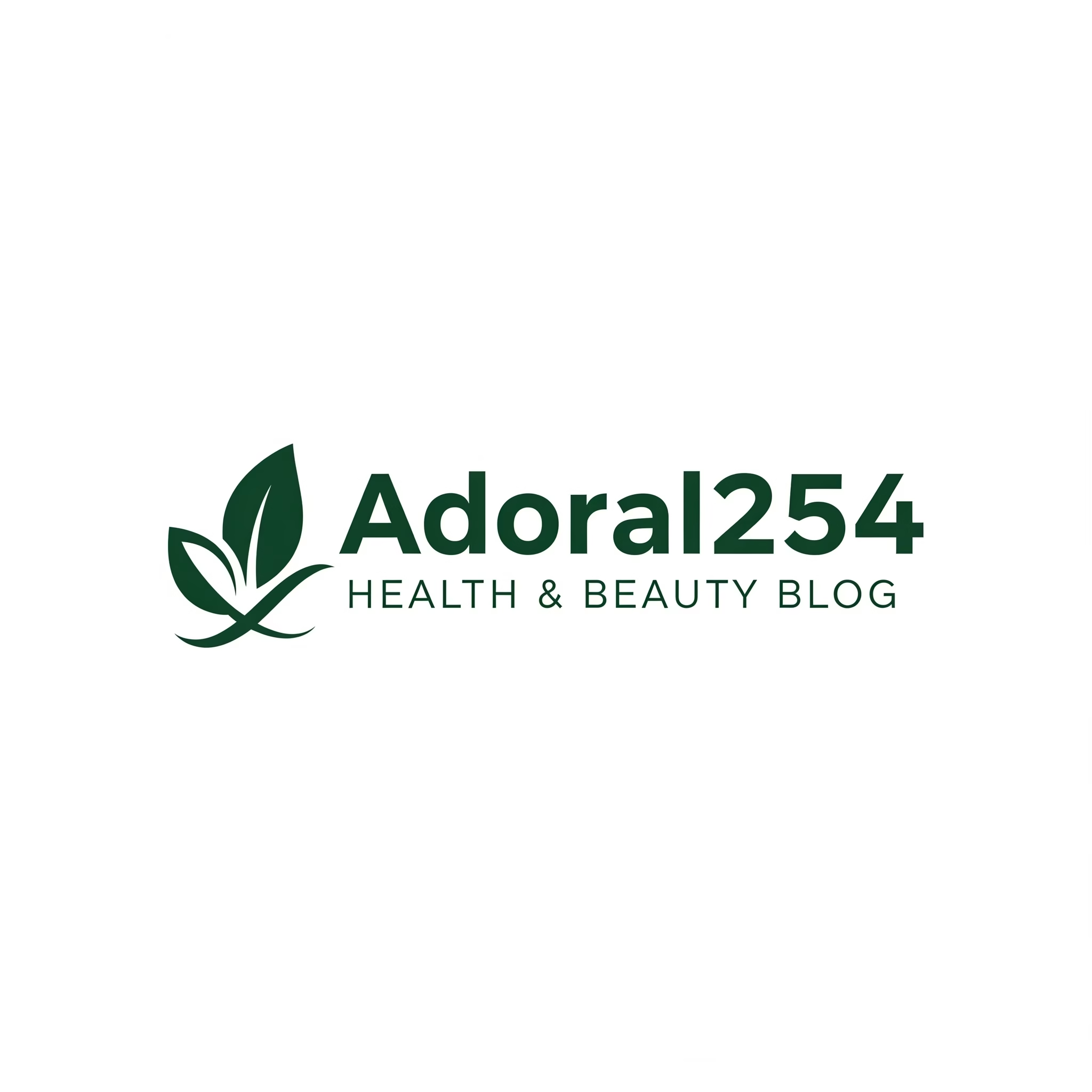

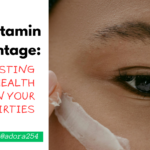


Can you be more specific about the content of your article? After reading it, I still have some doubts. Hope you can help me. https://www.binance.info/bg/register?ref=V2H9AFPY
Can you be more specific about the content of your article? After reading it, I still have some doubts. Hope you can help me. https://www.binance.info/zh-TC/register?ref=DCKLL1YD
Your point of view caught my eye and was very interesting. Thanks. I have a question for you. https://accounts.binance.com/es-AR/register?ref=UT2YTZSU
Heard about some activities and rewards on 777vipph8activety, logging in now to check it out. Hopefully, it is worth it.
Just signed up at plot777loginregister. The registration process was smooth. Haven’t played much yet, but first impressions are good. Fingers crossed! Remember to bet responsibly though!
I don’t think the title of your article matches the content lol. Just kidding, mainly because I had some doubts after reading the article. https://www.binance.info/uk-UA/register?ref=XZNNWTW7
Apostascaixa tá interessante, viu? Já fiz uns palpites e tô curtindo a plataforma. Fácil de usar e com boas opções. Bora ver se a sorte tá do meu lado! Dá uma olhada aqui: apostascaixa
Can you be more specific about the content of your article? After reading it, I still have some doubts. Hope you can help me. https://www.binance.info/register?ref=IHJUI7TF
Thank you for your sharing. I am worried that I lack creative ideas. It is your article that makes me full of hope. Thank you. But, I have a question, can you help me?
ph363 https://www.reph363.net
Your point of view caught my eye and was very interesting. Thanks. I have a question for you.